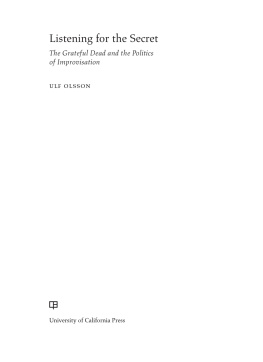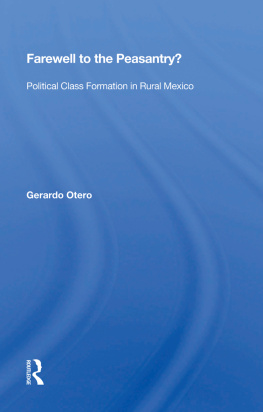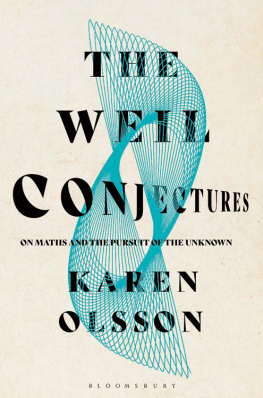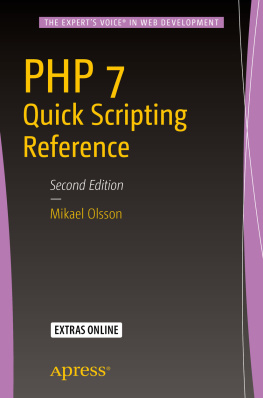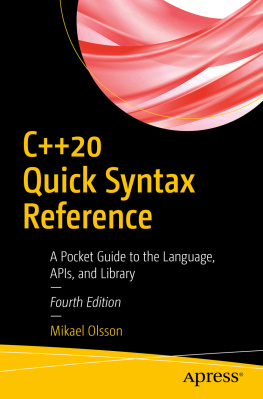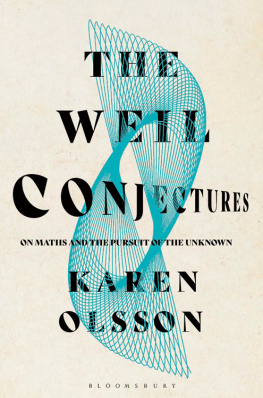Copyright 2017 by Princeton University Press
Published by Princeton University Press,
41 William Street, Princeton, New Jersey 08540
In the United Kingdom: Princeton University Press,
6 Oxford Street, Woodstock, Oxfordshire OX20 1TR
press.princeton.edu
Jacket photograph courtesy of the Rockefeller Archive Center
Portions of were previously published as Tore C. Olsson, Sharecroppers and Campesinos: The American South, Mexico, and the Transnational Politics of Land Reform in the Radical 1930s, Journal of Southern History 81, no. 3 (August 2015): 60746.
All Rights Reserved
Library of Congress Cataloging-in-Publication Data
Names: Olsson, Tore C., author.
Title: Agrarian crossings : reformers and the remaking of the US and Mexican countryside / Tore C. Olsson.
Other titles: America in the world.
Description: Princeton : Princeton University Press, [2017] | Series: America in the world | Includes bibliographical references and index.
Identifiers: LCCN 2016047513 | ISBN 9780691165202 (hardcover : alk. paper)
Subjects: LCSH: Land use, RuralSouthern StatesHistory20th century. | Land use, RuralMexicoHistory20th century. | Land reformSouthern StatesHistory20th century. | Land reformMexicoHistory20th century. | Agriculture and stateSouthern StatesHistory20th century. | Agriculture and stateMexicoHistory20th century.
Classification: LCC HD207 .O47 2017 | DDC 333.760975dc23
LC record available at https://lccn.loc.gov/2016047513
British Library Cataloging-in-Publication Data is available
This book has been composed in Sabon NEXT Lt Pro
Printed on acid-free paper.
Printed in the United States of America
1 3 5 7 9 10 8 6 4 2
ACKNOWLEDGMENTS
LIKE THE cooperative farming communities that Mexican and US reformers idealized during the 1930s, this book has been the product of many hands pitching in. I am deeply beholden to the generosity of countless people who gave their time and energy, over more than a decade, to help me complete this project. Though these words on paper will hardly settle my outstanding debts, I hope they serve as a beginning.
First off, I would never have had the time and resources to write this book if not for the assistance of several institutions. Perhaps my greatest debt lies with the Social Science Research Council, whose International Dissertation Research Fellowship launched this project and sustained me while I dug into US and Mexican archives for nine straight months. Then, a national fellowship from the University of Virginias Miller Center for Public Affairs gave me time to digest what I had found and complete my dissertation. In more recent years, the University of Tennessees Humanities Center provided me invaluable writing time as a resident scholar, while a National Endowment for the Humanities fellowship in 2016 allowed me to complete the final manuscript. Small grants from the Society for Historians of American Foreign Relations, Rockefeller Archive Center, University of Tennessee, New Orleans Gulf South Center at Tulane University, and University of Georgias history department as well as Latin American and Caribbean Studies Institute helped finance shorter research trips, too.
This book can trace its intellectual roots to my graduate career at the University of Georgia, and the extraordinarily brilliant and exceptionally generous community in Athens that shared its wisdom with me. Foremost, Shane Hamilton shepherded this project from a confused hodgepodge of ideas to a finished dissertation, and then into a final manuscript. Shanes steadfast commitment to me and my work has been nothing short of astounding. That I was his first doctoral student is particularly mind-boggling, and I will never understand where he learned the sage-like patience, devotion, and mentorship he showed me over so many years. Pamela Voekel single-handedly instilled in me a fascination with Mexican history, and lent support and enthusiasm at every turn of the journey. Jim Cobb taught me the ins and outs of US southern history, and trained me to think like a historian. Bethany Moreton schooled me in transnational history, pushing me to pursue a multilingual, multinational project despite my initial reluctance. Paul Sutter introduced me to environmental history, and the early seeds of this book grew out of his America and the World research seminar. John Inscoe, Stephen Mihm, and Reinaldo Romn each played foundational roles in my growth as a scholar. Yet I probably learned as much from graduate colleagues as from my faculty mentors, and special thanks and love are due to Derek Bentley, Rachel Bunker, Jessie Fly, Darren Grem, Dave Himmelfarb, Tim Johnson, Keri Leigh Merritt, Chris Manganiello, Jason Manthorne, Kathi Nehls, Tom Okie, Lesley-Anne Reed Beadles, Blake Scott, and Levi Van Sant for their inspiration, support, and laughs along the way.
In navigating the fields of US, Mexican, political, rural, agricultural, environmental, and transnational history, Ive had the good fortune of being welcomed into these communities by generous scholars. My deepest thanks and gratitude go out to those who devoted countless hours to carefully reading my work and commenting on it. Chad Black, Chris Boyer, Sterling Evans, Luke Harlow, Amelia Kiddle, Dan Klingensmith, Prakash Kumar, Tom Rogers, Julie Weise, and Mikael Wolfe each read substantial portions of the manuscript and provided incredibly useful feedback. Greg Downs, Daniel Immerwahr, Ann Jefferson, Jeff Norrell, and Sarah Phillips should in all fairness have their names on this books cover alongside mine, as each read the entire manuscript and played the most essential role in molding it into what it is today. Lengthy conversations and exchanges with Venus Bivar, Pete Daniel, Mona Domosh, David Ekbladh, Bart Elmore, Liz Fitting, Jim Giesen, Randal Hall, Mark Hersey, Susan Levine, Tim Lorek, Stephen Macekura, April Merlaux, Marcela Mijares Lara, David Nally, Adrienne Petty, Jeffrey Pilcher, Dan Rood, Gabe Rosenberg, Sigrid Schmalzer, Micol Seigel, Kendra Smith-Howard, John Soluri, Gabriela Soto Laveaga, Christy Thornton, and Andrew Zimmerman greatly helped me clarify my works argument and significance. I am also deeply thankful to Cuauhtmoc Crdenas for speaking with me at length about his father and hydraulic development across national borders.


